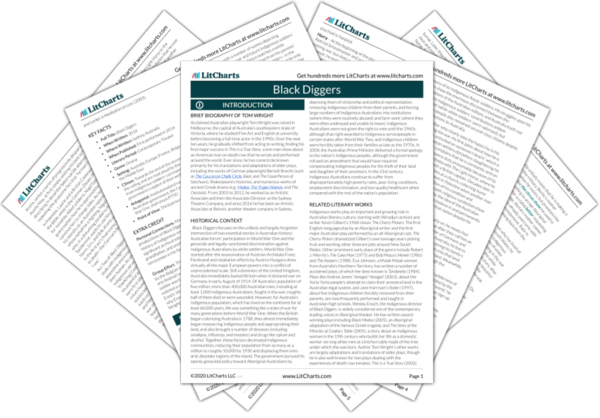In a
No Man’s Land foxhole at
Passchendaele in 1917, a light sweeps past the characters, who fall to the ground. Two white soldiers accost
Laurie, arguing that he should know where the light came from because “you have tracking skills […] you fellers all have a fifth sense or something.” Laurie insists that he “grew up in bloody
Erskineville!” and the others ask why he kept getting sent “on recky” (reconnaissance). Laurie responds that he might have “better camouflage in the dark.”
